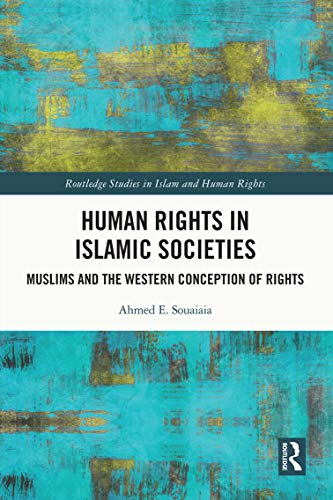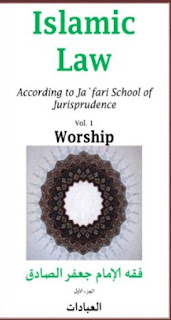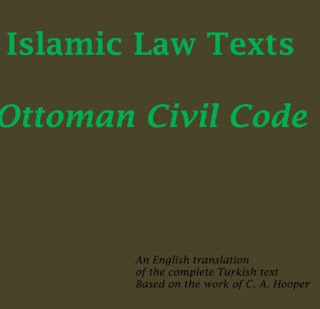Inheritance Samples For Clarification
A close look at what we have presented, reveals that the Jurists of the four (Sunni) schools of Law bar the fmale and whoever related to the deceased because of her from inherotance in many cases. For instance the daughters children, the paternal aunts, the paternal uncle from the mother’s side and the dgandfather from the mother’s side, the maternal uncles and the maternal aunts; all would not inherit a thing once there exists a member from the agnates who is related to ythe deceased from the father’s side. The brother’s daughter from the two parents’ side or the father’s side will not inherit along with her brother from her mother and her father. Had it not been for the Qur’anic texts which prescibed the shares of the daughter, and the sister and sisters from the father’s side, and the brothers and sisters in particular from the mother’s side; there status would have been the same as that of the rest of the females and those related through them to the deceased.
This is a practice from the time of ignorance where inheritance was established on the principle biased toward man. For this reason they restricted the inheritance to be the right of the older son who carries arms and who fights. If there were no man from amongst the children who can carry arms, the estate was given to agnates from the father’s side. While reviewing the inheritance rule as prescribed by Sunni jurists, I have noticed that females inherit only when they have a share prescribed in the Book of God, or if analogy dictates that she takes an equal share to one that is prescribed for another female as is the case when they assimilate (Ilhaaq) the son’s daughter with proper daughter. Other than that all females are barred. Imámís however, equate the rights to inherits of both males and females as it shall be clear from the folowing examples:
Survived by a daughter and a brother from the two parents’ side or the father’s side:
Sunnis say:
Daughter Brother
1/2 1/2
Imámís say:
The entire estate goes to the daughter and none to the brother.
Survived by a daughter and a Mother
Sunnis say:
Mother Daughter
1/6 3/6
The remaining two shares shall be taken by the grandfather from the father’s side if he exists, otherwise the brothers from the two parents side, otherwise the brothers from the father’s side in the order of the agnates.
Imámís say:
Mother Daughter
1/4 3/4
Agnates take nothing.
Survived by a father, a mother, and daughters’ children:
Sunnis say:
Father
Mother in absence of a Barrer Daughter’s children
4/6 2/6 0/6
Imámís say:
Father
Mother in absence of a Barrer Daughter’s children
2/6 1/6 3/6
Survived by Mother, Father, and husband:
Sunnis say:
Father Mother Husband
4/12 2/12 6/12
Imámís say:
Father Mother Husband
1/6 2/6 3/6
Survived by Mother, father, and wife:
Sunnis say:
Father Mother Wife
6/12 3/12 3/12
Imámís say:
Father Mother Wife
5/12 4/12 3/12
Survived by a father and a daughter:
Sunnis say:
Father Daughter
1/2 1/2
Imámís say:
Father Daughter
1/4 3/4
Survived by a daughter and a grandfather from the father’s side:
Sunnis say:
Grandfather Daughter
1/2 1/2
Imámís say:
Grandfather Daughter
0 all
Survived by wife, mother, and a grandfather from the father’s side:
Sunnis say:
Wife Mother Grandfather
3/12 4/12 5/12
Imámís say:
Wife Mother Grandfather
1/4 3/4 0
Survived by Grandfather from the father’s side and grandfather from the mother’s side
Sunnis say:
Grandfather from the father’s side Grandfather from the mother’s side
All 0
Imámís say:
Grandfather from the father’s side Grandfather from the mother’s side
2/3 1/3
Survived by grandmother from the mother’s side and grandfather from the mother’s side:
Sunnis say:
Grandmother from the mother’s side Grandfather from the mother’s side
All 0
Imámís say:
Grandmother from the mother’s side Grandfather from the mother’s side
1/2 1/2
Survived by grandmother from the mother’s side and grandmother from the father’s side:
Sunnis say: Both shall share the sixth equally. The remainder to the most entitled one from amongst the male agnates. Otherwise, it shall be Returned to the grandmothers according to \anafís and \anbalís , and given to the treasury acording to Málikís and Sháfi`ís .
Imámís say:
Grandmother from the mother’s side Grandmother from the father’s side
1/3 2/3
Survived by Son’s daughter and daughters daughter:
Sunnis say: Half goes to the son’s daughter, the remainder goes to an agnate, and nothing for the daughter’s daugher.
Imámís say: Each of them shall take the share of the original cause of the relationship.
Son’s daughter Daughter’s daughter
2/3 1/3
Survived by daughter’s son and son’s daughter:
Sunnis say: one half to the son’s daughter, the remainder goes to an agnate, and nothing for the daughter’s son.
Imámís say:
Daughter’s son Daughter’s son
1/3 2/3
Survived by a daughter and a son’s daughter:
Sunnis say:
Daughter Son’s daughter
3/6 3/6
The remainder goes to an agnate.
Imámís say:
Daughter Son’s daughter
All 0
Survived by two daughters and a son’s daughter:
Sunnis say: two thirds for the two or more daughters, the remainder goes to an agnate, and nothing for the son’s daughter.
Imámís say: the entire estate goes to the two daughters.
Survived by two daughters, son’s daughters, and son’s son:
Sunnis say: The two daughters take two thirds, and one third goes to son’s daughters and son’s son who will share it unequally “For the male the share of two females”.
Imámís say: The entire estate goes to the two daughters and nothing for the son’s children.
Survived by a daughter, a sister from the two parents’ side or from the father’s side:
Sunnis say:
Daughter Sister
1/2 1/2
Imámís say:
Daughter Sister
All 0
Survived by ten daughters and a sister from two parents’ side or from the father’s side:
Sunnis say:
Ten Daughters Sister
1/2 1/2
Imámís say:
Ten Daughters Sister
All 0
Survived by a daughter and a brother from the mother’s side:
Sunnis say: one half for the daughter as a prescribed share, the remainder goes to the agnates, nothing for the brother fromthe mother’s side.
Imámís say: The entire estate goes to the daughter.
Survived by a daughter and a sister and a paternal uncle from the two parents side or the father’s side:
Sunnis say:
Daughter Sister Uncle
1/2 1/2 0
Imámís say:
Daughter Sister Uncle
All 0 0
Survived by a daughter and a paternal uncle from the two parents’ side or from the father’s side:
Sunnis say:
Daughter Uncle
1/2 1/2
Imámís say:
Daughter Uncle
All 0
Survived by a Paternal uncle and a Paternal aunt from the two parents side or from the father’s side:
Sunnis say:
Uncle Aunt
All 0
Imámís say:
Uncle Aunt
2/3 1/3
Survived by a daughter, the son of a paternal uncle from the two parents’ side or the father’s side, and a paternal uncle from the mother’s side:
Sunnis say:
Daughter Uncle’s son Uncle
1/2 1/2 0
Imámís say:
Daughter Uncle’s son Uncle
All 0 0
Survived by Maternal uncles and aunts and the son of a Paternal uncle from the two parents’ or from the father’s side:
Sunnis say: The entire estate goes to the Uncle’s son and nothing for the Aunts and uncles.
Imámís say: The entire estate to the Maternal aunts and uncles, and nothing for the uncle’s son. The formula fro division was mentioned respectively in the particular sections dealing with their inheritance.
Survived by daughter and son of the paternal uncle from the two parents side or from the father’s side:
Sunnis say: The entire estate goes to uncle’s son and nothing for the uncle’s daughter even if she was a sister to the uncle’s son from his father and his mother.
Imámís say:
Uncle’s daughter Uncle’s son
1/3 2/3
Survived by a grandfather from the mother’s side and a paternal uncle from the two parents side or the father’s side:
Sunnis say: the entire estate goes to the uncle and nothing for the grandfather.
Imámís say: The entire estate goes to the grandfather, and nothing for the uncle.
Survived by son of brother from two parents’ side or from the father’s side and five children of another brother also from the two parents’ side or the father’s side:
Sunnis say: The state will be divided on the number individual sons not on number of their parents. There shall be six prescibed shares; one share of each son.
Imámís say: The estate shall be divided on the number of their parents not on their numbers. Then each of the son’s will take the share of the person who caused the relationship. Therefore, the son of the one brother takes five shares out of ten, and the other five sons take the remaining five shares they devide it 1/10 for each of them.
Survived by son of a brother and daughter of a brother from two parents’ side or from the father’s side:
Sunnis say: The male will inherit but not the female although she is his sister from the same father a mother.
Imámís say: They both inherit according to the rule “ For one male s share equal to that of two females”.
This examples will suffice. for they are enough to present a complete picture of the fundamental difference between the Imámís and Sunnis in assigning the inheritance rights




0 comments:
Post a Comment